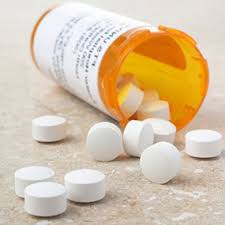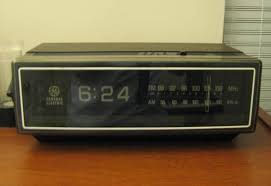Rehab Articles

dual diagnosis, dual diagnosis treatment
A dual diagnosis occurs when you are diagnosed with a mental disorder and a substance abuse problem, but how is this made and what dual diagnosis treatment options are available? When you first seek help for either the substance abuse or the mental disorder it is important that all of your conditions and medical issues are known. The first step should be a complete evaluation, with a physical exam, testing, and a complete diagnostic work up. This will help to ensure that any mental disorder is identified along with the substance abuse. When a dual diagnosis is provided then dual diagnosis treatment will involve a specific plan for each of the conditions that you have, so all of the problems are addressed at the same time.
Dual diagnosis treatment is critical, because if both conditions listed in the dual diagnosis are not addressed and effectively treated then a full recovery will not be possible. When only the substance abuse or the mental disorder is treated then the other problem will still cause issues, and you will not be whole. Dual diagnosis treatment needs to be personalized for your specific needs and the mental disorders that are present. When a mental disorder is present it may take some time to determine whether the addiction or the mental illness is the underlying disorder and which problem is contributing to the other. If this is not done then dual diagnosis treatment is not going to be effective, and you could end up relapsing soon after you leave treatment for the dual diagnosis.
Rehab Articles

ADHD medications, substance abuse
Today physicians are learning more about preventing substance abuse with ADHD medications, and this training is sorely needed. Guidelines have been issued by the American Academy of Pediatrics to ensure proper care for children who are given these medications in order to prevent substance abuse. Children who have ADHD have a higher risk for substance abuse according to a recent paper which was published in the Pediatrics Journal. The guidelines released on ADHD medications in children includes practical advice to physicians about the potential for abuse with ADHD medications and signs to watch for that would indicate substance abuse of any type. It is becoming more common for children and teens who are prescribed stimulants to have the opportunity to buy, sell, trade, and misuse these medicines in a number of ways.
Authors of the recent report on ADHD medications and substance abuse with these drugs stated “Prescribers are cautioned that many school-aged children with ADHD- up to 23% – are approached to sell, buy or trade their medication. Stimulant medications have the potential for misuse, diversion and addiction. Treatment of ADHD symptoms with stimulant medication may reduce the risk of developing substance use disorders. ” The report goes on to caution that every provider follow safe stimulant prescribing practices to ensure that the ADHD medications are used as intended and do not provide the opportunity for substance abuse. In addition a physician should confirm any ADHD diagnosis before prescribing ADHD medications which have a stimulant effect. There are many other disorders which can also cause symptoms of this condition.
Rehab Articles
Someone who displays the signs of compulsive eating may be suffering from one of the eating disorders and not even realize it. This condition is often called a food addiction, and it may be caused by some of the same factors that lead to substance abuse in others. The need to overeat may be due to an emotional state or a traumatic event earlier in life. Would you recognize the signs of compulsive overeating if you experienced or saw them? For many people the answer is no.
Some of the common signs of compulsive eating may be similar to those of certain other eating disorders. Binge eating occurs when large amounts of food are consumed in a single sitting, and you continue eating long after your hunger has been satiated. Other possible signs of compulsive overeating can include:
- Eating food faster than usual
- Being preoccupied with your weight
- Feeling guilty when you eat too much
- Being ashamed of your eating habits
- Eating in private when no one else is around
- Hiding food, or hiding evidence of the amount of food that you have consumed
- Weight that fluctuates frequently
- Constantly dieting yet failing to lose weight
- Being overweight from eating large amounts of junk food
- Obesity related medical and health conditions
- Depression
- Mood swings
- Losing interest in the usual activities because you are concerned about your weight or how you look
- Using food as a source of comfort or a friend
Rehab Articles

alcohol abuse, military veterans
New research shows that military veterans may engage in alcohol abuse due to the stressors of civilian life, and that this is a higher risk for military veterans than for civilians. National Guard soldiers who returned home after leaving the service were far more likely to engage in alcohol abuse if they experienced setbacks in their civilian life. Some of the biggest stresses included serious legal issues, divorce, the loss of a job, or serious financial problems like bankruptcy or home foreclosure. The results of this study can be found online in the American Journal of Preventative Medicine. Military veterans who return home are at a higher risk of alcohol abuse when life gets tough and civilian stress is high, and in depth help is needed to help these vets acclimate to the stress of civilian life.
Assistant Professor of Epidemiology at the Mailman School of Public Health at Columbia University Magdalena Cerdá, PH.D., MPH, who was the lead study investigator, discussed the findings regarding military veterans and alcohol abuse. “Exposure to the traumatic event itself has an important effect on mental health in the short-term, but what defines long-term mental health problems is having to deal with a lot of daily life difficulties that arise in the aftermath — when soldiers come home. The more traumatic events soldiers are exposed to during and after combat, the more problems they are likely to have in their daily life — in their relationships, in their jobs — when they come home. These problems can in turn aggravate mental health issues, such as problems with alcohol that arise during and after deployment.”
Rehab Articles

alcohol use, alcohol abuse, sleep disturbances
Study results have shown that alcohol abuse can cause sleep disturbances even after all alcohol use is stopped. A number of studies have shown that the sleep patterns of current and past alcoholics are not the same as sleep patterns which occur in those who have never abused alcohol. One of the relevant studies was published in the Oct 1 2009 Sleep journal, and the study involved 84 people. It has long been seen that alcohol use can impact sleep, but 42 study participants were previous alcoholics in recovery and 42 study participants had never had any issues with alcohol abuse. Everyone who participated in the study had an overnight stay in the sleep lab and they were attached to monitors to study their brain and sleep patterns.
Alcohol use and alcohol abuse cause sleep disturbances, but what was a little surprising was the sleep patterns that were seen in individuals who were previously alcoholics but who had been in recovery for at least 30 days, and some of the study participants had been in recovery for much longer than this. Even after being clean and sober for at least 30 days, and in some cases many months, those who had alcohol abuse issues in the past still had sleep disturbances. Alcohol use causes reduced REM sleep and it may be possible that the sleep disturbances seen in previous alcoholics is the attempt by the body to recover from insufficient REM sleep.



